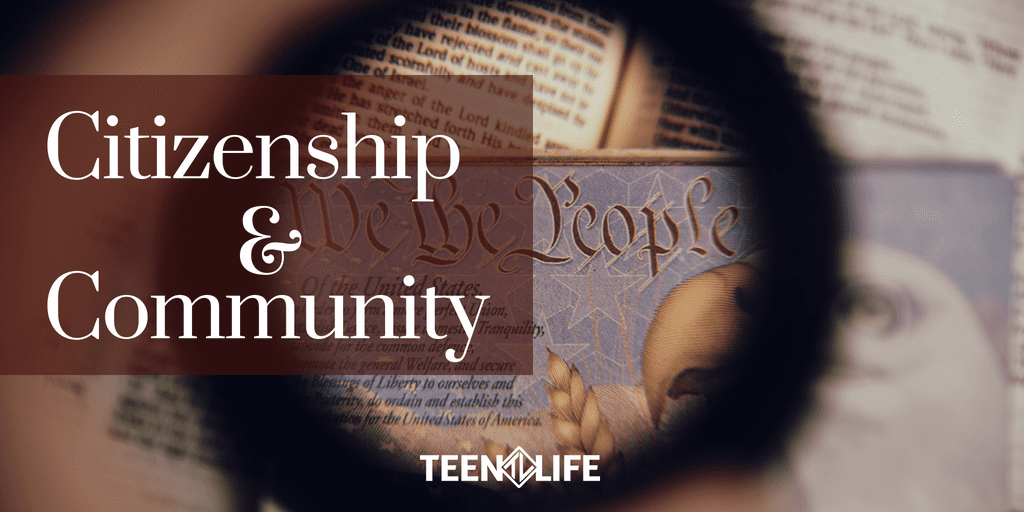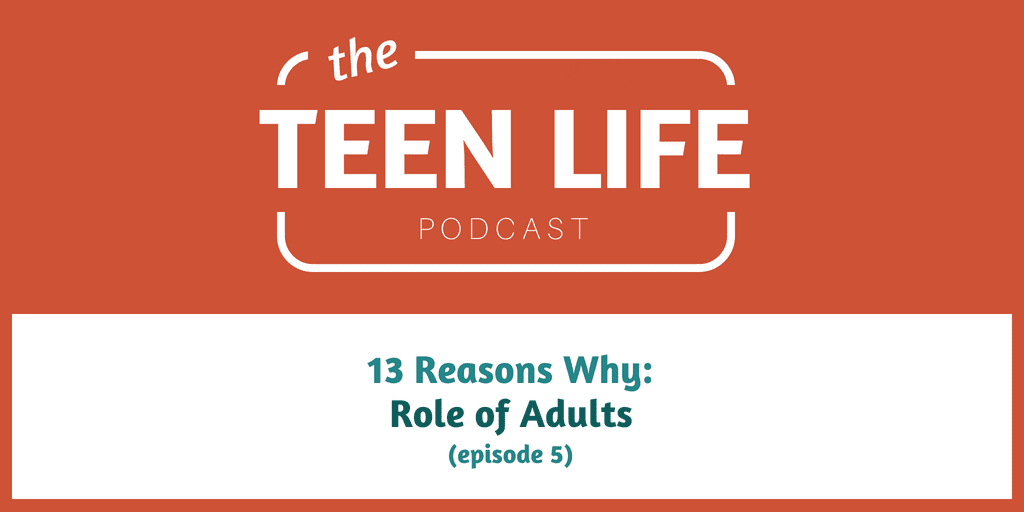
5 Conversations to Have As School Starts
It’s nearly time for back-to-school and I can hear the cheers and tears from the Teen Life office. Whether you are looking forward to getting back to a routine, wondering how your baby has grown into a high school senior, or are trying to figure out how your youth ministry is going to hold up against football season – you have a role to play in this upcoming school year!
Before teenagers start back at their middle or high schools, or the graduates leave home to start their college adventures, take time to have bold, encouraging conversations! You have an opportunity to help students set goals and think about where they want to be at the end of the school year.
By having healthy conversations (check out this blog post), this school year can get off to a great start from the very first day.
Here are some goals to help teenagers think about as they start school:
The Grades Conversation
Grades are important. They help you graduate high school and get college scholarships. They are a reflection of what you have learned and how hard you have worked at a particular subject.
However, grades don’t define your student or their worth. Students will put pressure on themselves about what kind of grades they should be making before saying a word. Instead of starting the school year with a lecture about responsibility, finishing homework before video games, or the consequences of poor test grades…
Ask your student these questions:
- What do you want your grades to look like at the end of this school year?
- If you improved your grades and school work from last year, what would that look like?
- How can I help you succeed this school year?
If you allow them to set their own goals, they will take more ownership in their school work. Instead of working toward your expectations, they will be stepping up to the standards they set for themselves – what better lesson could you teach a teenager?
Help them set realistic goals and hold them accountable throughout the year with {friendly} reminders. Don’t expect your B student to make a 4.0 this school year, but encourage them to improve and continue to grow!
Also, join these conversations on teens and grades:
The Friends Conversation
As you know, friends and peers have a huge influence during adolescence. They can impact grades, decisions, activities, and their attitude. While they are old enough to choose their friends, it is okay for you to offer adult guidance in their choices.
When it comes to friendships they have at school, start a conversation by asking these questions:
- What relationship last year provided the most encouragement?
- How do your friendships impact your performance at school or in extracurriculars?
- Are there any relationships that provided drama or stress? What can you do to make that relationship healthier?
They probably aren’t going to react well if you ban them from hanging out with their best friend. But maybe you can open up the door for healthy conversation if you ask them to share first.
Teenagers are smarter than we often give them credit for!
If they are in an unhealthy relationship, let them talk through what that looks like and what they could do to either get rid of the friendship or set up healthier boundaries.
The Extracurriculars Conversation
It seems like today’s teenagers are busier than ever. Not only are they expected to go to school during the week and church on the weekends, but they also have to be involved in multiple extracurriculars, join school clubs, and complete crazy amounts of service hours.
That is what colleges expect, right?
Extracurriculars are good and character-building. However, students need to set goals, not only for bettering themselves through these activities, but also for leaving margin and rest despite their busy schedules. Especially if you are talking to a teenager who is involved in multiple sports, activities, or volunteer opportunities, encourage them to set healthy goals by asking these questions:
- How many extracurriculars do you think you’ll have time for with school and other responsibilities?
- How can you improve and use these experiences to help you in the future?
- What can you do to make time for rest, friends, and fun?
Have them prioritize their activities. There may be some new opportunities that arise this year, but if it surpasses what they can handle, it is not worth taking it on. They are teenagers, but they are still allowed to have fun! Please don’t allow your teenager to live like an adult. Help them take advantage of the freedom and fun that comes with adolescence. If they feel like they need to give up an activity to better balance their time, help them make the decision that is best for them (even if it means giving up that sport you love).
The Physical, Mental, and Spiritual Health Conversation
Coming off the last conversation, it is so important for teenagers to take care of themselves! While culture is talking more about mental health, we cannot ignore it in our homes, churches, or schools!
Please make sure you are having these conversations with your teen. Are they aware of signs of depression or suicide in themselves or friends? Are they motivated to improve in any of these areas? This conversation could be touchy or emotional, and is really three conversations, but don’t shy away from it!
Start with these questions:
- Do you feel like you have someone you can talk to about health? (Especially about mental and spiritual health.) Who is that person?
- What would you do if a friend came to you with a health concern?
- What could you do this school year to improve in each of these areas? How could we help you accomplish your goals?
Be willing to ask your teen about the current state of their physical, mental, and spiritual health. Do they want to change anything? How can you help? Can you get them a gym membership or cook healthier meals? Could you help them seek the guidance of a counselor? Does one of their friends need a trusted adult to talk to? Can you start a family Bible Study? Consider what they need for themselves and from you.
You might also like these conversations on mental, spiritual, and physical health:
The Boundaries Converation
Teenagers are trying to find identity and values at this phase of life. As the adults in their lives, it is our job to guide and teach while also giving them a safe space to try and sometimes fail. Teens won’t be perfect – I wasn’t at that age and I definitely still make plenty of mistakes! However, we can help them set some boundaries in place to protect and direct while they gain the confidence and understanding they need to truly succeed.
Maybe boundaries look like setting a curfew, or a time restraint on social media or Netflix. Maybe they want to limit how often they hang out with a certain friend or which event they want to avoid. Let them start the conversation and try not to jump in at the beginning with what you think is best.
Here are a few questions to get this final conversation started:
- What personal boundaries would help you succeed this school year?
- How likely are you to say, “No!” when someone crosses your boundaries?
- How do you think the boundaries we have set could be helpful? Are there any boundaries you have concerns about?
The beginning of school is a great time to talk about boundaries and expectations for the school year. Some rules will change over the years, and some will stay consistent. Some teenagers will even have intelligent boundaries that they want to set for themselves – give them that opportunity!
Conclusion
You have the power and the opportunity to help teenagers see their future and set goals to reach it.
Ask good questions, listen with empathy, and work together to set realistic goals that will allow them to not only enjoy but also take advantage of their teenage years.
These are great conversations to have at the beginning of school, but we also encourage you to revisit these topics – ask how they are doing with their goals and if anything has changed. This is just a starting place!!
Are you willing to have these conversations? Share what goals the teenagers you talk to set! How will you help hold them accountable?

Karlie Duke
Communications Director
Karlie Duke | Director of Communications
Karlie has always had a heart for teenagers. Through her role at Teen Life, she loves to showcase the amazing stories coming out of Support Groups, but she is especially passionate about helping adults and teenagers find connection. Karlie has a BS in Communications with a minor in Family Studies from Abilene Christian University.


















